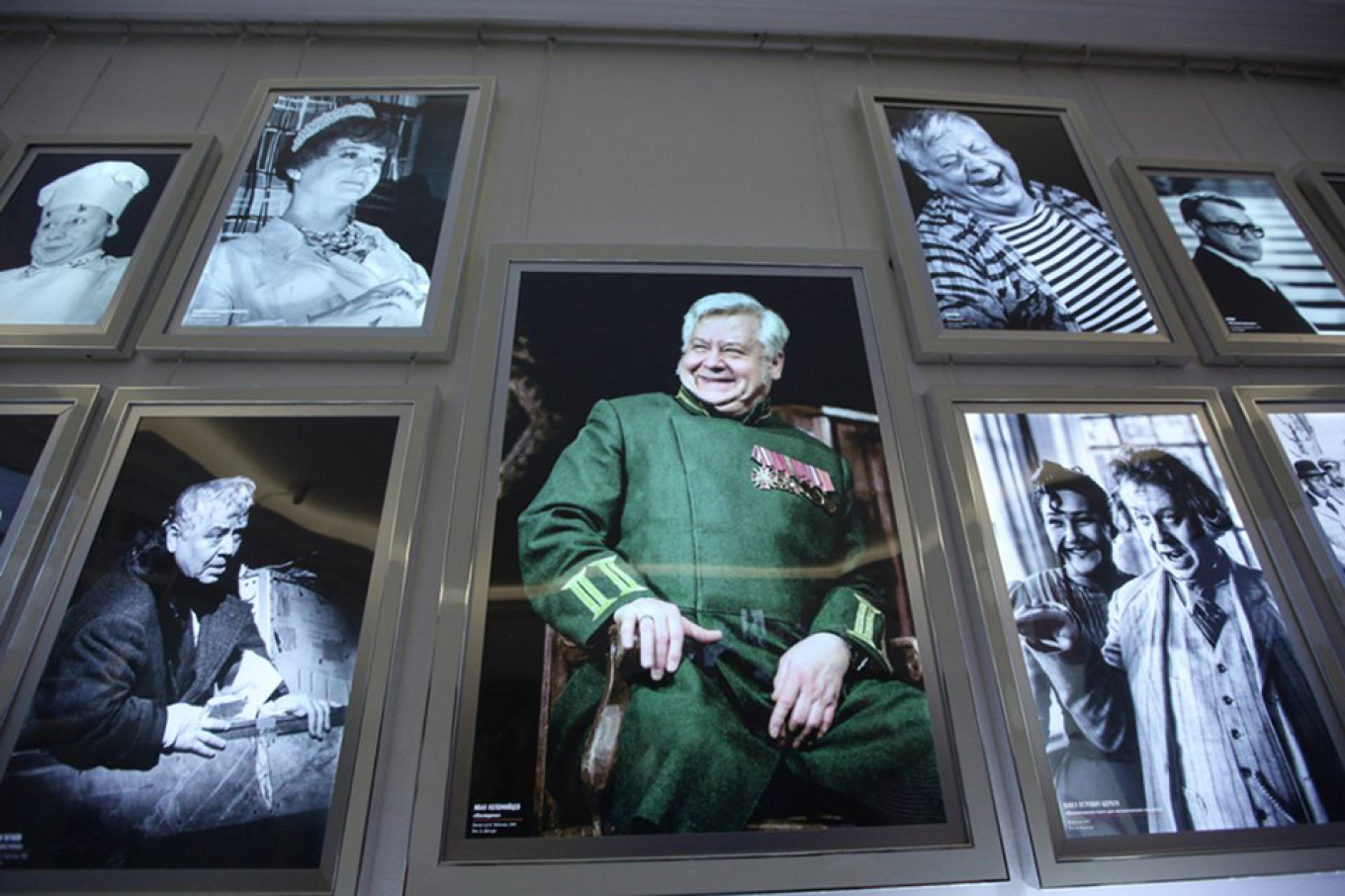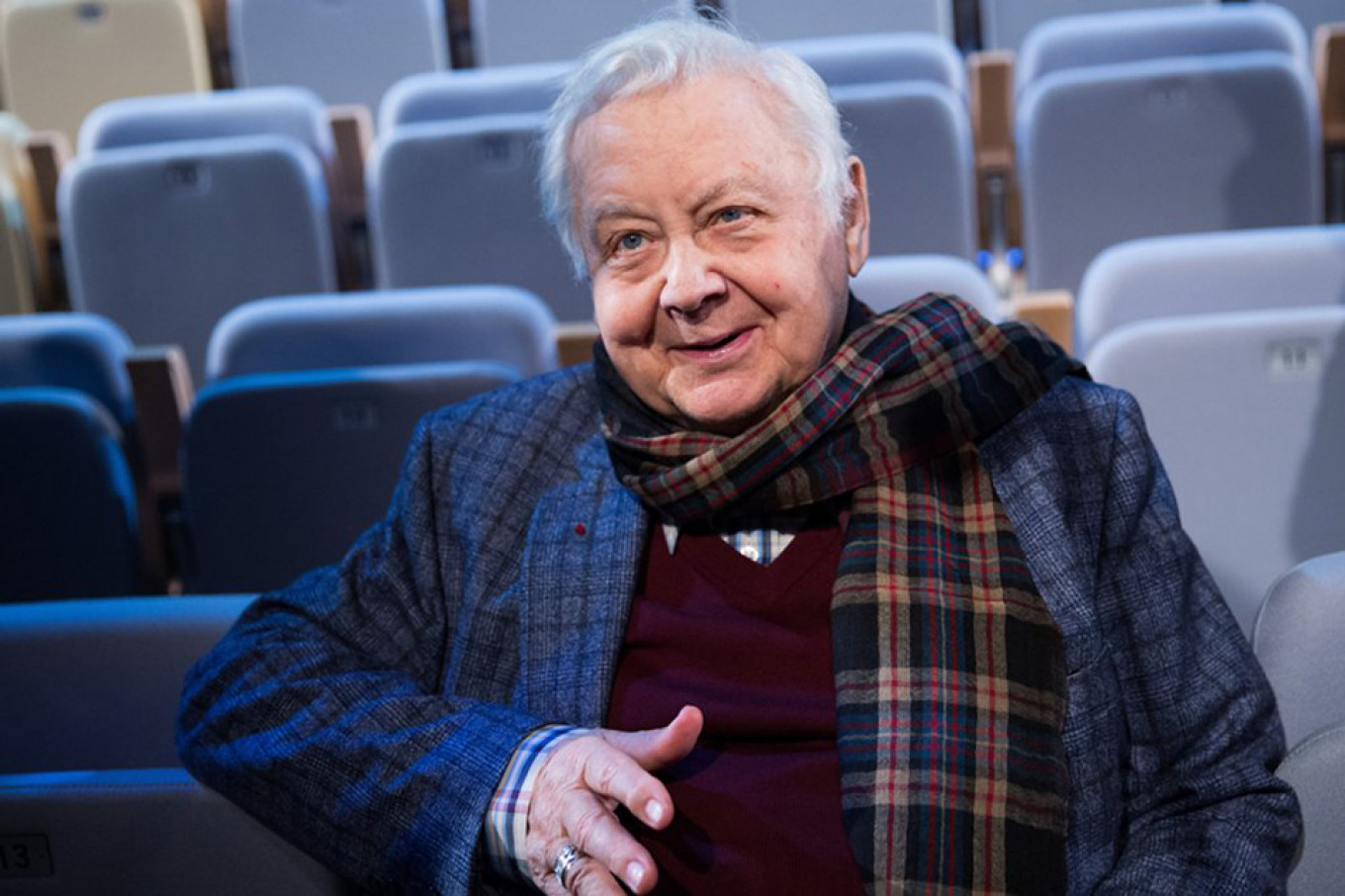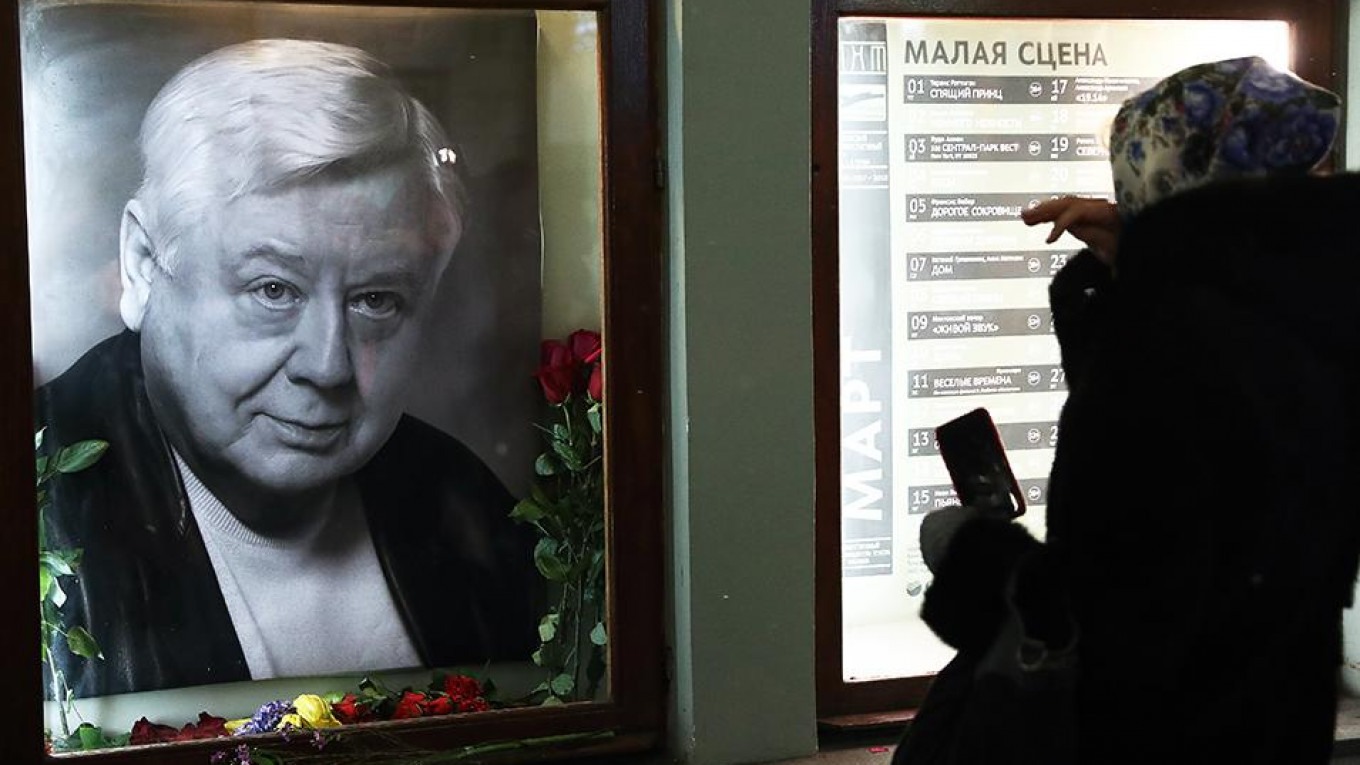Oleg Tabakov, one of the most prominent figures in Russian theater and cinema, died yesterday after a prolonged illness. He was 82 years old, and his career spanned more than six decades.
Born in 1935 in Saratov, a provincial city on the Volga River, he moved to Moscow after finishing high school to study theater at the Moscow Art Academic Theater (MKhAT) School in 1953, the year that Joseph Stalin died. In a sign of his future career, Tabakov debuted almost simultaneously in theater in cinema in 1956.

In 1957, at the height of Khrushchev’s Thaw period, Tabakov joined together with other rebellious performers to establish the Studio of Young Actors. It later was transformed into the “Sovremennik,” one of Moscow’s most popular theaters. In 1977 he founded his own venue —"Oleg Tabakov’s Theater," known simply as “Tabakerka” among Muscovites (a play on words, it literally means “snuffbox”).
In 1979, Tabakov played one of his most memorable roles, the title role in Nikita Mikhalkov’s brilliant “Oblomov,” based on the eponymous classic by Ivan Goncharov. Another role he is remembered for is Nikolai Rostov in classic adaptation of “War and Peace” directed by Sergei Bondarchuk, one of Soviet cinema’s patriarchs. Tabakov also played in one of the first Soviet TV series, “Seventeen Moments of Spring.”
Tabakov’s voiceover of Matroskin, a talking cat from the “Prostokvashino” animated series, made his voice known to virtually every Russian, old or young. A sculpture of Matroskin is even part of the monument to Tabakov in his hometown Saratov, erected several years ago to commemorate his birthday.
Russia’s preeminent film critic, Anton Dolin, commented in his piece for Meduza: “Once heard, Tabakov’s voice would be unerringly recognized right away. People were born to the sound of his voice, learned to walk and talk to it, laugh and cry.”
In 2000, Tabakov became artistic director of his alma mater, which by this time lost the “A” (for Academic) in its name and became MKhT or the Moscow Art Theater. He overhauled the conservative theater’s repertoire by inviting up-and-coming directors like Kirill Serebrennikov, Konstantin Bogomolov and Yury Butusov.

Valery Fokin, artistic director of the Alexandrinsky Theater in St. Petersburg, told the web publication Meduza: “His theater lessons, psychology lessons, and acting lessons helped me in my life and work a great deal. He had a gift: he could describe something or show something and everything fell into place.”
His latest appearances as an actor were mostly in Bogomolov’s productions, including in Chekhov’s “Seagull,” where he played doctor Dorn, and an adaptation of Yevgeny Schwartz’s provocative play “Dragon,” where he played the town’s corrupt mayor. In the latter role Tabakov was forced to play from a wheelchair, but he made it seem like a prop rather than a result of a health problem.
His last years were also marred by a controversy surrounding his support of the Crimea annexation and involvement in East Ukraine, as well as his comments calling Ukrainians “miserable.” After his death several liberal opinion leaders warned against praising Tabakov too much because of his political tendencies.
But Kirill Serebrennikov, Tabakov’s student and artistic director of Gogol Center, who has been under house arrest for the past several months as a result of an embezzlement charge, offered a different opinion. He passed a statement through his lawyer to be published on the Gogol Center’s web-site. It reads: “We lost our defender. Oleg [Tabakov] spent his whole life eagerly, selflessly, recklessly defending the theater and its interests. [I mean] the whole of Russian theater, theater as an art form, as a way of life, as a miracle. [Theater] was the place where he applied his power, his energy, and his talent.”
A Message from The Moscow Times:
Dear readers,
We are facing unprecedented challenges. Russia's Prosecutor General's Office has designated The Moscow Times as an "undesirable" organization, criminalizing our work and putting our staff at risk of prosecution. This follows our earlier unjust labeling as a "foreign agent."
These actions are direct attempts to silence independent journalism in Russia. The authorities claim our work "discredits the decisions of the Russian leadership." We see things differently: we strive to provide accurate, unbiased reporting on Russia.
We, the journalists of The Moscow Times, refuse to be silenced. But to continue our work, we need your help.
Your support, no matter how small, makes a world of difference. If you can, please support us monthly starting from just $2. It's quick to set up, and every contribution makes a significant impact.
By supporting The Moscow Times, you're defending open, independent journalism in the face of repression. Thank you for standing with us.
Remind me later.






